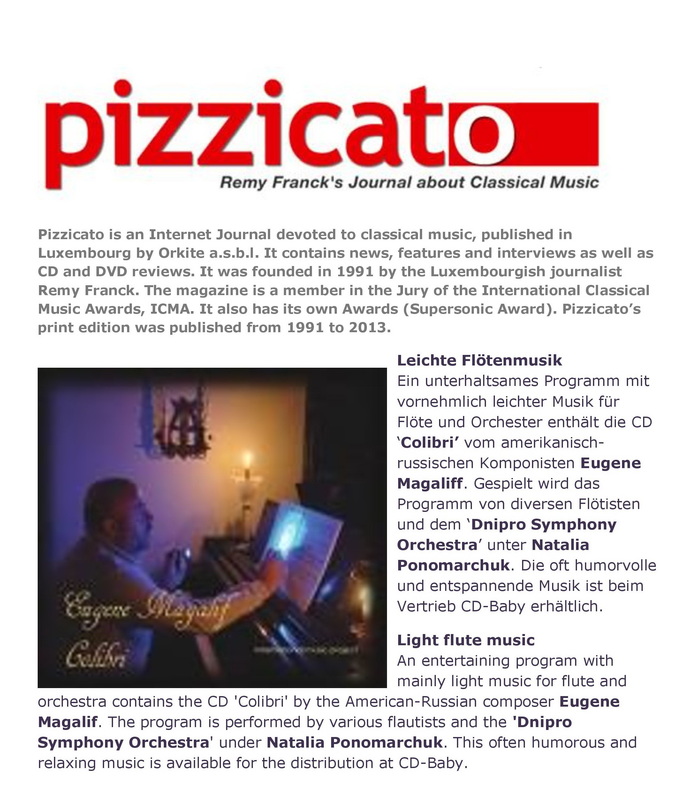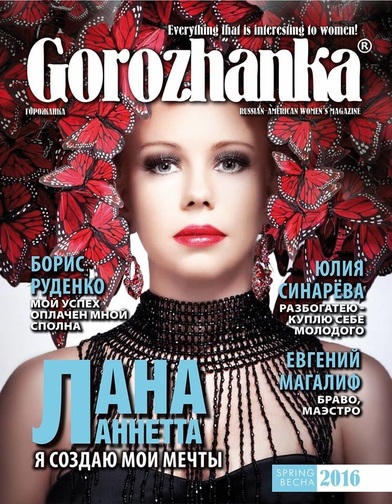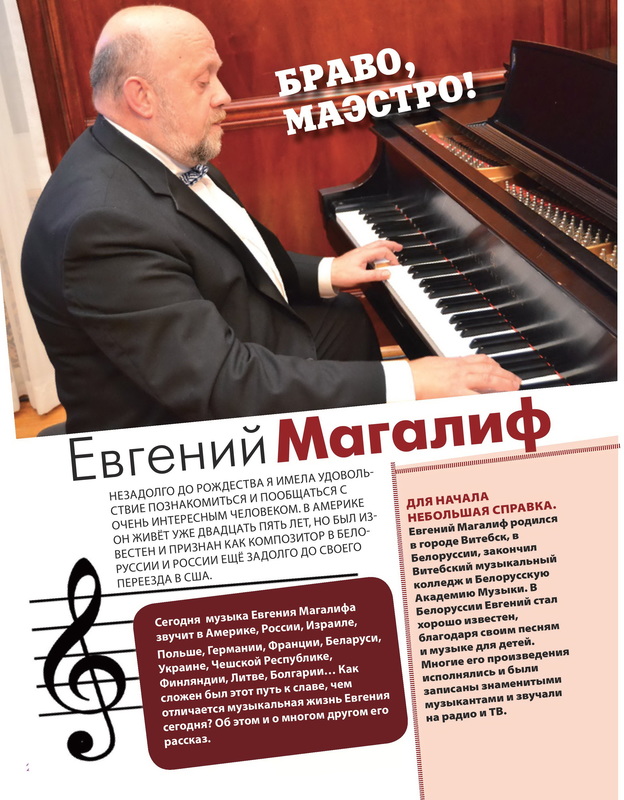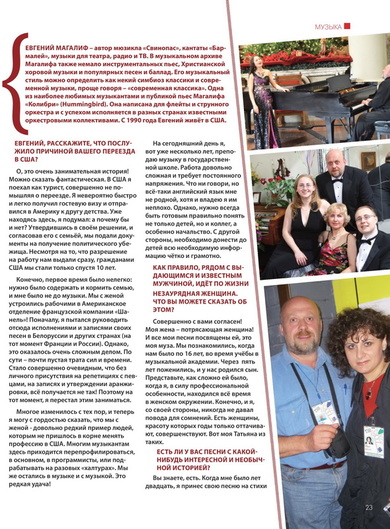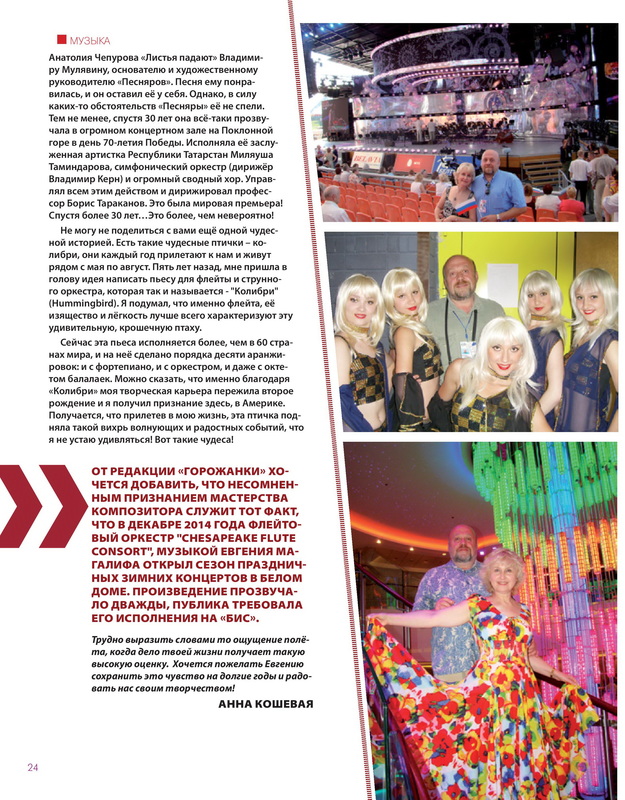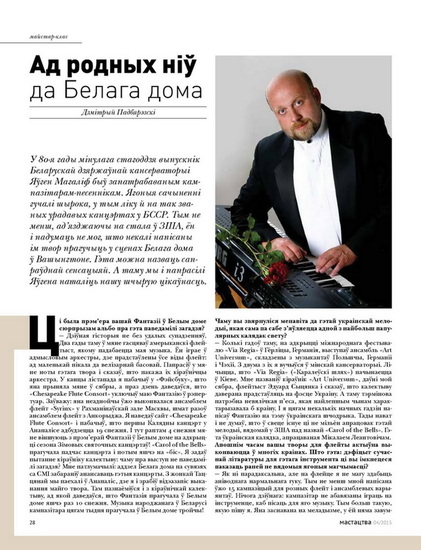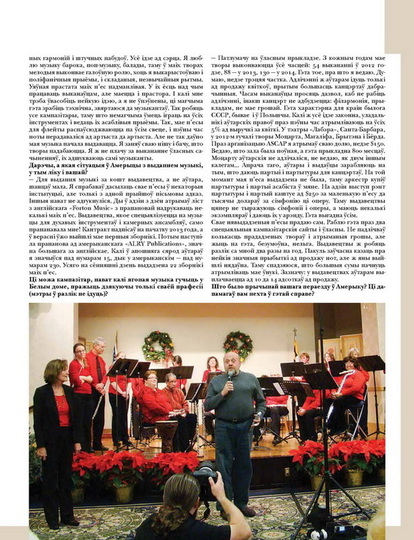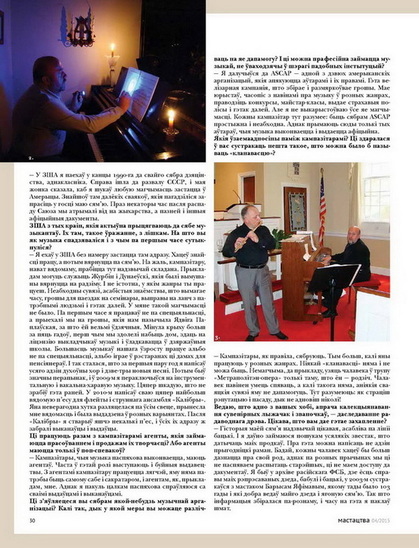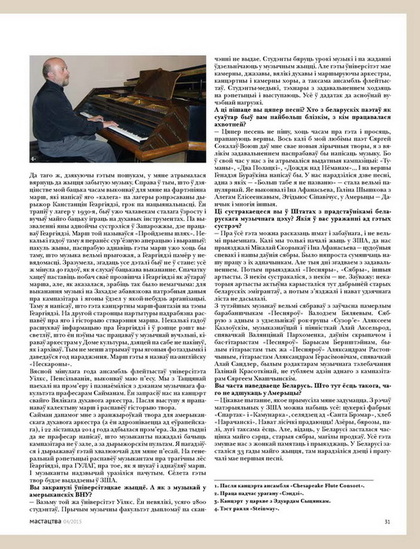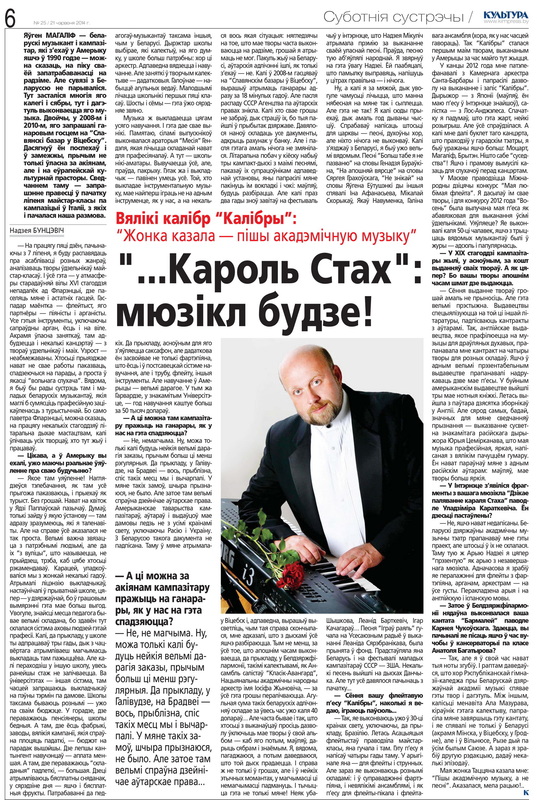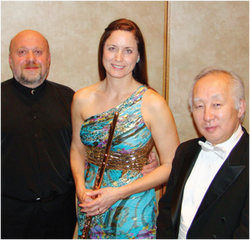Interview to "City Girl" Magazine, Spring 2016, USA
Intrview to "ART" Magazine, April 2015. Republic of Belarus

"Mr. Magalif's compact and tasty score is a deceptively simple charmer, with deeper deposits of concept."
JOSEF WOODARD, NEWS-PRESS CORRESPONDENT
January 27, 2013 1:30 AM
Tuesday night at the Lobero, in what is probably the most provocative programs of its season, the Santa Barbara Chamber Orchestra neatly demonstrated the refreshing power of presenting music of a recent-ish vintage (say, the early 20th century on up through 2010), which both soothes and challenges the ear. In the center ring: Benjamin Britten's compelling piecemeal masterpiece "Variations on a theme of Frank Bridge," a tribute to his mentor, and a strong example of the great British composer's way of juggling the biter and the sweet, the consonant and the
dissonant. Opening this mostly 20th century evening on an 18th century note, maestro Heiichrio Ohyama led the charges through a piece by Mozart, one of the orchestra natural mainstays. Mozart's Sinfonia Concertante in E-flat, for string orchestra and a quartet of soloists – SBCO principles bassoonist Judith Farmer, clarinetist Michael Grego, oboist Jennifer Johnson, plus Jenny Kim on Horn – is a wonderfully crisp and elegant work. The core premise involves two ensembles, the quartet in front and the surrounding strings, interacting and conversing, over the course of appealing three movements. At work's end, the orchestra itself rightfully applauded the in-house musicians, moved forward to the stage in soloist roles, and deservedly so.
On the heels of the November concert's fascinating performance of Russian minimalist Vladimir Martynov's hypnotic "Come In!," the orchestra gave the actual U.S. premiere of Russian-born (and now New Jersey-based) composer Eugene Magalif's charming lark, "Hummingbird for Flute and String Orchestra." The composer was in the house, and appeared pleased with the results during his onstage bows, as he should have been. On this occasion, the fine flutist Angela Wiegand played soloist and, in effect, the role of "hummingbird," whose
alternately staccato articulations and scalar fluttering took flight over the strings' pizzicato murmurings and fuller textures, all with a subtle Piazzolla-like harmonic song structure. Like Martynov's music, Mr. Magalif's compact and tasty score is a deceptively simple charmer, with deeper deposits of concept for those willing to dig.
After intermission, the orchestra delved into the Britten opus, and with a sharpness of interpretation and the proper gentle propulsion. A kaleidoscopic set of miniatures, with the introduction and theme opening the way for ten individual variations on the theme, the score manage to be a survey of moods and musical manners, while touching on the many facets of both Bridge's musical personality and Britten's own potent personal vocabulary. Along the way, we hear a slightly drunken waltz, a busy, buzzy "Moto Perpetuo" (another hummingbird effect on the program, however accidental), and mystical "chant" section.
As a perfect capper to the evening, and follow-up to the Britten centerpiece, the orchestra played Bridge's own "An Irish Melody (Londonderry Air) H. 86," which works its way around themes and textures before landing on its true thematic nugget, a wistful reading of "Danny Boy," gone chamber orchestral. Voila, an evening of pleasant musical challenges ended on a sweet and comforting note.
email: [email protected]

